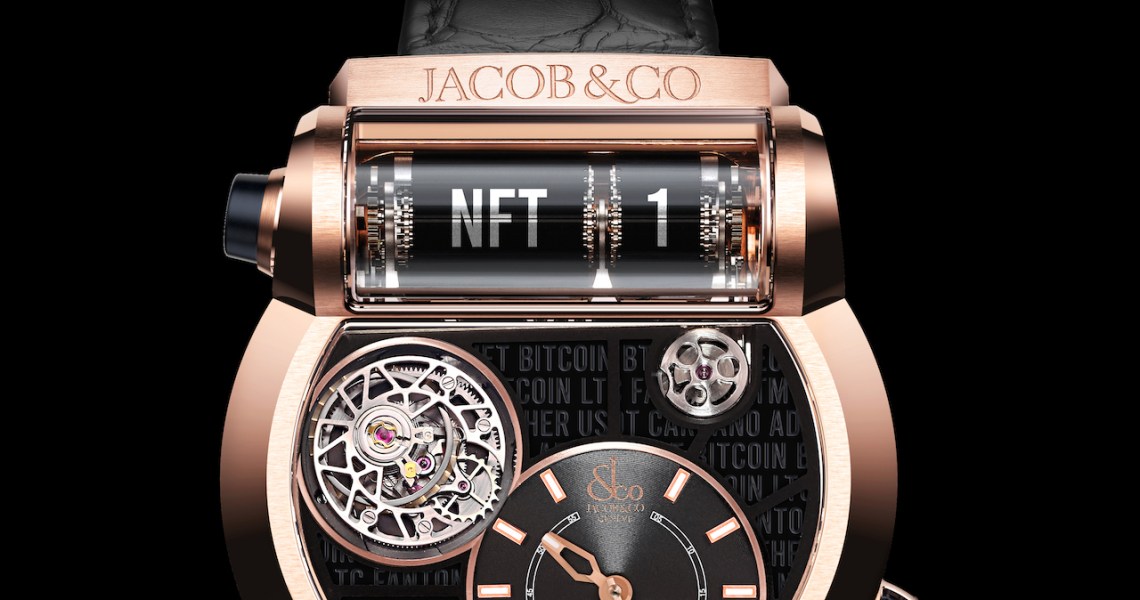From blockchain to Pokemon Go, it’s inevitable that any buzzworthy trend will see fashion brands flocking to it, trying to figure out how to turn it into a marketing opportunity. The latest of these trends is the NFT, or non-fungible token, a form of unique digital asset. NFTs have exploded in popularity in the last year, egged on by celebrities like Elon Musk and Grimes, the latter having already sold NFTs for millions of dollars at auction.
But so far, fashion hasn’t settled on the best way to use them. Their entirely digital nature puts them at odds with fashion being all about physical products. Most fashion-related excursions into the land of NFTs have been for marketing purposes, so far. But while NFTs, as they’re currently bought and sold, may be little more than a novelty for fashion brands, some of the future potential applications, like for authentication and tracking of high-end luxury goods, are more likely to have long-term benefits.
To quickly summarize, an NFT is a digital asset, which could be an image, a video or an audio file, for example. It’s unique and cannot be copied, because its digital ownership is tracked through blockchain. If downloading an image from the internet to your phone is like buying a reproduction of a Picasso painting, owning the NFT of that image is like owning the original Picasso.
Luxury watch brand Jacob & Co. is promoting its upcoming NFT auction in collaboration with NFT platform ArtGrails across its social channels, calling it the first-ever NFT luxury watch launch. On Apr. 4, ArtGrails will be auctioning off a one-of-a-kind NFT created by Jacob & Co.’s internal design team. The highest bidder will receive all the physical accoutrements that come with a high-end watch, like a certificate of ownership and a case. The case will contain a hard drive with the NFT — a digital rendering of a Jacob & Co. watch. The NFT is intended for collectors and investors looking to invest in a one-of-a-kind piece, according to the brand.
Jacob & Co. CEO Benjamin Arabov said NFTs are new ground for the company, but he envisions a bright future for the technology’s usefulness in fashion.
“It’s definitely a bit of a risk,” Arabov said, adding that costs for producing the NFT are similar to that of producing an actual watch. But his hope is that it sells for far more than the retail price of a Jacob & Co. watch, which typically ranges from $20,000 to $1,000,000. “We want to make some noise in the space and get people paying attention to NFTs, and hopefully pave the path for our competitors to go there as well.”
Arabov said the auction will only have a limited business impact, since only one customer will actually own take ownership of an NFT. However, he hopes the attention it brings to NFTs in fashion will pave the way for other less bombastic uses for the technology.
Ad position: web_incontent_pos1
Avery Andon, founder of ArtGrails, said there are several more practical uses that fashion could get out of NFTs. A brand like Prada could embed an NFT in every physical product it sells and, for example, embed a ticket to a Prada fashion show in 10 randomly selected pairs of shoes. Or a streetwear brand could pair NFTs with sneaker drops, the way sneaker brand RTFKT Studios did last week when it sold 600 digital art NFTs paired with sneakers for $3.1 million total.
Watch brands like Jacob & Co. could embed an NFT in every watch to track its purchase history so that, when it’s resold, the buyer could know exactly where the watch had been before. The same technology could be used to authenticate high-value goods and prevent the sale of counterfeits. As Business of Fashion noted, NFTs can also provide royalties to the original creator, so a situation where the original brand gets a royalty every time a handbag is resold is possible, as well.
“Yesterday, we had an issue where someone was posing as one of our users and had dumped about 100 fake NFTs onto the market,” Andon said. “We got on the phone with that user and, within an hour, we had every single fake removed. A place like eBay is flooded with fakes, but NFTs provide a great way to block things like that. You could add an NFT to every watch you sell, and you’d be able to track them all perfectly.”




